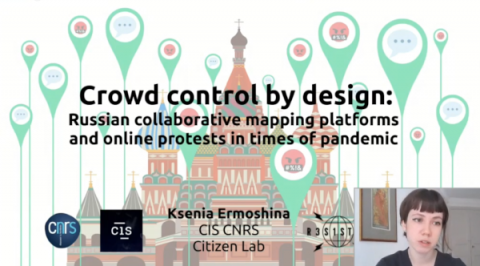
Below is a description of the IAMCR 2020 online video session of the Communication Policy and Technology Section. If you are an IAMCR member, login to your account to watch the full session or any of the individual presentations. If you are not a member, join now to access all IAMCR 2020 papers and video sessions until 12 September 2020. Your membership will remain valid until 31 December 2021!
See a complete list of all the section and working group video sessions or all of the online papers.
Session description
This session builds upon the peculiar and momentous set of circumstances that our world experienced in the first part of the year due to the Covid-19 pandemic. This moment in time has been exceptional in many ways. Particularly relevant to communication and technology scholars have been the changes it brought to the complex relations between technology, power, and policy. The rapid spread of the pandemic has prompted a number of conflicts and controversies around technological artifacts and the power balances embedded in them and enacted by their means.
With this panel, we aim at sparking an IAMCR 2020 conversation about the effects of the state of emergency on the relationship between technology and power; about the initiatives of new actors, the consolidation of existing actors and the evolution of their alliances or confrontations; about the variety of policy responses for technology and by technology that emerged in the “Covid-19 crisis”; and about the possibility (or lack of) to eventually move back to what was previously considered as normal.
This panel features six interventions and a discussion piece by first-rate media and communication scholars from around the world, and presents a geographically- and issue-comprehensive panorama of technology policy and governance in the times of Covid-19. Far from treating the current turn of events as a ‘one and only’ moment in history, this panel reminds us that we, as scholars of media and communication technologies, can work towards an understanding of the technology/power interplay during and after the pandemic through analytical lenses we already possess.
With their analyses of the application of new monitoring and analytic technologies, of innovative responses grounded in solidarity, cooperation or resistance by technology, of technology policy evolutions, our panelists show that the Covid-19 pandemic is a catalyzer and an amplifier – and for the analyst, a magnifying glass – of long-standing and well-studied issues in technology policy, including techno-solutionism, the legitimacy of technological intervention, and the (re)production of power and information asymmetries via technology.
Chair: Francesca Musiani (Centre for Internet and Society, National Centre for Scientific Research)
Corona Tracing Apps - an infrastructure perspective
Jeanette Hofmann (WZB Berlin Social Science Center)
The impacts of Covid-19 in the Brazilian Data Protection Framework
Clara Iglesias Keller (WZB Berlin Social Science Center)
Crowd control by design: Russian collaborative mapping platforms and online protests in times of pandemic
Ksenia Ermoshina (Centre for Internet and Society, CNRS)
Framing the Nation’s Battle against the COVID-19 Infodemic: Comparative analysis of news in China, South Korea, and Singapore
Elmie Nekmat (National University of Singapore)
COVID-19 contact tracing from an African perspective: Is the forgoing of individual rights for public health crisis management worth the data abuse risks?
Alison Gillwald (Research ICT Africa and University of Cape Town)
Digital policy implications of the COVID-19 crisis and response in Canada
Sam Andrey (Ryerson University)
Discussant: Angela Daly (University of Strathclyde)